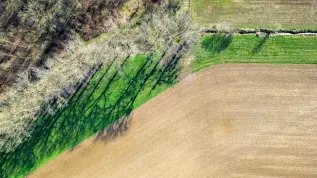
As a result of human activity, European forest plants shift their ranges not only towards the poles, as was commonly believed, but also westwards, according to research by an international team including Polish scientists.
The results of the study were published in Science.
The scientists analysed the distribution of 266 European species of forest plants over a period of 84 years. In total, the study covered 3,000 forest sites located in areas such as the Białowieża Forest in Poland and the forests of Brandenburg in Germany.
The scientists calculate that European forest plants are shifting their geographical ranges at an average rate of 3.56 km per year.
They also found that around 39% of species moved to the west, and only 15% to the north. This means that westward migration was 2.6 times more likely. According to the researchers, this contradicts the common assumption that the temperature increase caused by climate change is causing many species to move to cooler regions in the north.
The scientists believe that this phenomenon can be explained by environmental changes caused by humans.
Many European forest plants tend to migrate to the west, following areas with high nitrogen concentrations in the soil. This is due to industrial activity, road traffic and human land use, the researchers say.
'The climate is currently changing at such an unprecedented rate that understanding the mechanisms responsible for the speed and direction of shifts in species ranges is extremely important. It allows us to understand the evolution of biodiversity and can contribute to ensuring its effective protection', says Professor Bogdan Jaroszewicz from the Faculty of Biology at the University of Warsaw and the Białowieża Geobotanical Station. (PAP)
Urszula Kaczorowska
uka/ bar/ kap/
tr. RL













